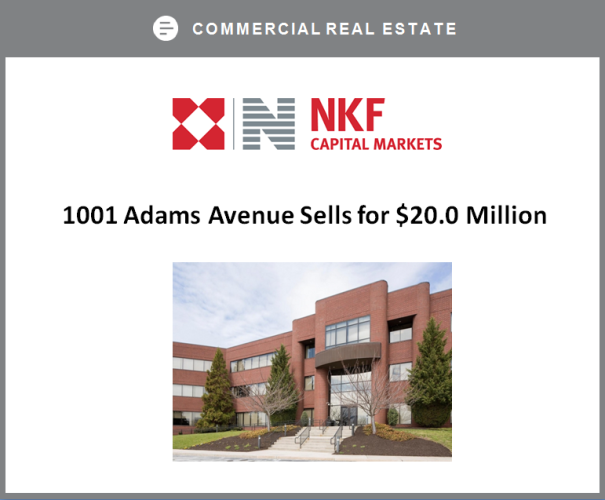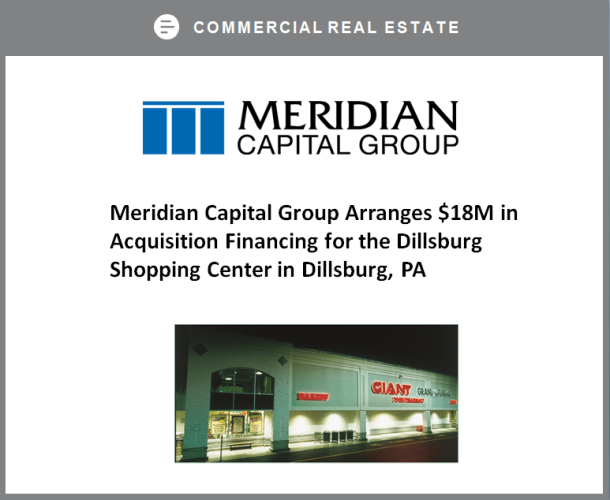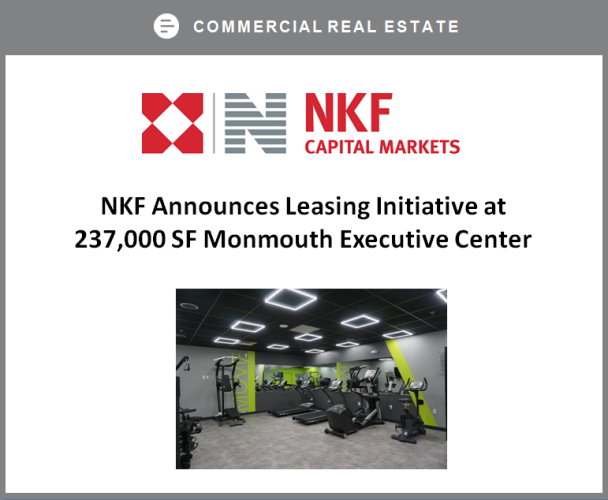F.N.B. Corporation (NYSE: FNB) reported earnings for the third quarter of 2018 with net income available to common stockholders of $98.8 million, or $0.30 per diluted common share. Comparatively, third quarter of 2017 net income available to common stockholders totaled $75.7 million, or $0.23 per diluted common share, and second quarter of 2018 net income available to common stockholders totaled $83.2 million, or $0.26 per diluted common share.
On an operating basis, third quarter of 2018 earnings per diluted common share (non-GAAP) was $0.29, excluding a $5.1 million gain recognized from the sale of Regency Finance Company (Regency). Comparatively, third quarter of 2017 operating earnings per diluted common share (non-GAAP) was $0.24, excluding the impact of $1.4 million of merger-related expenses. Second quarter of 2018 operating earnings per diluted common share was $0.27, excluding the impact of $6.6 million of branch consolidation costs, as well as the impact of a $0.9 million discretionary 401(k) contribution made following tax reform. Of the branch consolidation costs in the second quarter of 2018, $2.9 million were included in non-interest expense and $3.7 million were recorded as a loss on fixed assets reducing non-interest income.
Vincent J. Delie, Jr., Chairman, President and Chief Executive Officer, commented, "Earnings per share for the third quarter of 2018 increased 30% to $0.30 from the third quarter of 2017. The quarter's performance represents record total revenue and record net income, solid loan growth, double-digit annualized deposit growth and a 6.7% reduction in total expenses compared to the prior quarter. We are very pleased with the results that included positive operating leverage and an improved efficiency ratio of 53.7%. Return on tangible common equity of 19% reflects our commitment to driving further value creation and increasing returns for our shareholders."
Third Quarter 2018 Highlights(All comparisons refer to the third quarter of 2017, except as noted)
- Growth in total average loans was $1.1 billion, or 5.4%, with average commercial loan growth of $545 million, or 4.2%, and average consumer loan growth of $576 million, or 7.5%.
- Total average deposits grew $1.9 billion, or 9.1%, including an increase in average non-interest bearing deposits of $439 million, or 7.9%, and an increase in average time deposits of $1.4 billion, or 37.9%.
- The loan to deposit ratio was 92.9% at September 30, 2018, compared to 94.9%.
- The net interest margin (FTE) (non-GAAP) declined 8 basis points to 3.36% from 3.44%, reflecting a 3 basis point decrease in the fully taxable equivalent adjustment related to the impact of tax reform. Included in the net interest margin of 3.36% and 3.44%, Regency contributed 8 basis points and 13 basis points, respectively.
- Total revenue increased 6.3% to $310 million, reflecting a 4.2% increase in net interest income and a 13.1% increase in non-interest income.
- Non-interest income increased $8.7 million, or 13.1%. Excluding the Regency gain on sale, operating non-interest income increased $3.5 million, or 5.4%, with increases in mortgage banking, wealth management and capital markets.
- The efficiency ratio equaled 53.7%, compared to 53.1% in the third quarter of 2017, and 55.6% in the second quarter of 2018.
- The annualized net charge-offs to total average loans ratio increased to 0.27% from 0.24%. The third quarter of 2018 included 13 basis points of net charge-offs from the mark to fair value on the Regency loans prior to the sale, with no associated provision expense.
- The ratio of the allowance for credit losses to total loans and leases was essentially flat at 0.81%, compared to 0.82%.
Non-GAAP measures referenced in this release are used by management to measure performance in operating the business that management believes enhances investors' ability to better understand the underlying business performance and trends related to core business activities. Reconciliations of non-GAAP operating measures to the most directly comparable GAAP financial measures are included in the tables at the end of this release. "Incremental purchase accounting accretion" refers to the difference between total accretion and the estimated coupon interest income on acquired loans. "Organic growth" refers to growth excluding the benefit of initial balances from acquisitions.
Third Quarter 2018 Results – Comparison to Prior-Year Quarter
Net interest income totaled $234.8 million, increasing $9.6 million, or 4.2%. The net interest margin (FTE) (non-GAAP) declined 8 basis points to 3.36% and included $5.9 million of incremental purchase accounting accretion and $1.5 million of cash recoveries, compared to $2.2 million and $4.3 million, respectively, in the third quarter of 2017. Regency contributed $5.6 million of net interest income, or 0.08% to net interest margin, compared to $9.0 million or 0.13%. The sale of Regency, which included $132 million of direct installment loans, closed on August 31, 2018. The impact of the tax equivalent adjustment to net interest margin decreased to 0.06%, compared to 0.09% in the same quarter last year, due primarily to the impact of tax reform. Total average earning assets increased $1.6 billion, or 5.9%, due primarily to average loan growth of $1.1 billion.
Average loans totaled $21.8 billion and increased 5.4%, due to solid growth in the commercial and consumer portfolios. Average commercial loan growth totaled $545 million, or 4.2%, led by strong commercial activity in the Cleveland and Mid-Atlantic (Greater Baltimore-Washington D.C. markets) regions and continued growth in the equipment finance and asset-based lending businesses. Average consumer loan growth was $576 million, or 7.5%, as growth in indirect auto loans of $424 million, or 30.2%, and residential mortgage loans of $379 million, or 14.9%, was partially offset by declines in average direct installment loans and consumer lines of credit.
Average deposits totaled $23.1 billion, an increase of $1.9 billion, or 9.1%, reflecting growth in non-interest bearing deposits of $439 million, or 7.9%, and growth in time deposits of $1.4 billion, or 37.9%. The growth in non-interest bearing deposits reflected continued successful efforts to attract new and larger corporate customers across our footprint. The loan-to-deposit ratio was 92.9% at September 30, 2018, compared to 94.9% at September 30, 2017.
Non-interest income totaled $74.8 million, increasing $8.7 million, or 13.1%, from the prior-year quarter, reflecting the $5.1 million gain on sale of Regency and continued growth in our fee-based businesses. Capital markets income increased $2.3 million, or 80.7%, from the prior-year quarter, primarily attributable to higher levels of commercial swap activity across our footprint. Mortgage banking income increased $0.5 million or 9.7% from the prior-year quarter. Trust income increased $0.6 million, or 11.2%, and securities commissions increased $0.5 million, or 11.2%, reflecting organic growth and increased brokerage activity.
Non-interest expense totaled $170.7 million, increasing 4.3% compared to the prior-year quarter, which included $1.4 million of merger-related expenses. The primary driver of the increase in non-interest expense was an 8.7% increase in salaries and employee benefits as a result of increasing the minimum wage for FNB hourly employees in response to tax reform, normal annual merit increases and higher incentive compensation from business activities. The efficiency ratio (non-GAAP) was 53.7%, up slightly from 53.1%.
The ratio of non-performing loans and other real estate owned (OREO) to total loans and OREO decreased 7 basis points to 0.63%. For the originated portfolio, the ratio of non-performing loans and OREO to total loans and OREO decreased 18 basis points to 0.73%. Total delinquency remains at satisfactory levels, and total originated delinquency, defined as total past due and non-accrual originated loans as a percentage of total originated loans, improved 12 basis points to 0.79%, compared to 0.91% at September 30, 2017.
The provision for credit losses totaled $16.0 million, compared to $16.8 million in the prior-year quarter. Net charge-offs totaled $14.7 million, or 0.27% annualized of total average loans, compared to $12.5 million, or 0.24% annualized, in the prior-year quarter. For the originated portfolio, net charge-offs were $14.2 million, or 0.33% annualized of total average originated loans, compared to $13.0 million or 0.37% annualized of total average originated loans. Included in reported net charge-offs for the third quarter was $7.1 million or 0.13% for the mark to fair value on the Regency loans prior to sale with no associated provision impact. The ratio of the allowance for credit losses to total loans and leases was 0.81% and 0.82% at September 30, 2018, and September 30, 2017, respectively. For the originated portfolio, the allowance for credit losses to total originated loans was 1.00%, compared to 1.12% at September 30, 2017.
The effective tax rate was 18.0%, compared to 29.9%, reflecting the passage of the Tax Cuts and Jobs Act (TCJA), which lowered the U.S. corporate income tax rate from 35% to 21% as of January 1, 2018.
The tangible common equity to tangible assets ratio (non-GAAP) increased 2 basis points to 6.89% at September 30, 2018, compared to 6.87% at September 30, 2017. The tangible book value per common share (non-GAAP) was $6.44 at September 30, 2018, an increase of $0.32 from September 30, 2017.
Third Quarter 2018 Results – Comparison to Prior Quarter
Net interest income totaled $234.8 million, decreasing $4.6 million or 1.9%. The net interest margin (FTE) (non-GAAP) declined 15 basis points to 3.36% and included $5.9 million of incremental purchase accounting accretion and $1.5 million of cash recoveries, compared to $5.8 million and $10.2 million, respectively, in the second quarter. Regency contributed $5.6 million to net interest income, or 0.08% to net interest margin, compared to $8.5 million, or 0.12%, due to the timing of the transaction close. Total average earning assets increased $457 million, or 6.5% annualized, due to average loan growth of $330 million and a $128 million increase in average securities.
Average loans totaled $21.8 billion and increased 6.1% annualized, with average commercial loan growth of $90 million, or 2.7% annualized, and average consumer loan growth of $240 million, or 11.9% annualized. Commercial balances included growth of $53 million, or 18.5%, in commercial leases, while consumer balances reflected continued growth in indirect auto loans of $205 million, or 50.1% annualized, and residential mortgage loans of $100 million, or 14.2% annualized, partially offset by declines in direct installment loans and consumer lines of credit.
Average deposits totaled $23.1 billion and increased $638 million, or 11.3% annualized, due primarily to growth in average time deposits and average non-interest bearing deposits of $445 million and $202 million, respectively. The growth in non-interest bearing deposits primarily reflected successful efforts to attract new and larger corporate customers during the quarter. The loan-to-deposit ratio was 92.9% at September 30, 2018, compared to 96.1% at June 30, 2018.
Non-interest income totaled $74.8 million, increasing $9.9 million, or 15.3%, from the prior quarter. Excluding the previously-mentioned gain on the sale of Regency in the third quarter of 2018 and branch consolidation-related loss on fixed assets in the second quarter of 2018, non-interest income increased $1.1 million or 6.6% annualized. This was primarily due to an increase in service charges of $0.8 million and an increase in insurance commissions and fees of $0.4 million. Additionally, mortgage banking, capital markets, and wealth management produced strong fee income contributions, consistent with the prior quarter.
Non-interest expense totaled $170.7 million, a decrease of $12.3 million, or 6.7%, compared to the prior quarter, which included branch consolidation expenses of $2.9 million and a $0.9 million discretionary 401(k) contribution made following tax reform. Excluding these items, non-interest expense decreased $8.5 million or 4.7%. The primary driver of the third quarter decrease in non-interest expense was a 9.3% decrease in salaries and employee benefits. This was partly attributable to a medical insurance claim of $2.6 million and a $1.0 million payroll tax rate adjustment, both recognized in the second quarter, as well as branch consolidations in the second quarter and the sale of Regency. The efficiency ratio (non-GAAP) improved to 53.7% from 55.6%.
The ratio of non-performing loans and OREO to total loans and OREO increased 2 basis points to 0.63%. For the originated portfolio, the ratio of non-performing loans and OREO to total loans and OREO increased 2 basis points to 0.73%. Total delinquency remains at satisfactory levels, and total originated delinquency, defined as total past due and non-accrual originated loans as a percentage of total originated loans, increased 11 basis points to 0.79%, compared to 0.68% at June 30, 2018.
The provision for credit losses totaled $16.0 million, compared to $15.6 million in the prior quarter. Net charge-offs totaled $14.7 million, or 0.27% annualized of total average loans, compared to $18.2 million, or 0.34% annualized, in the prior quarter. For the originated portfolio, net charge-offs were $14.2 million, or 0.33% annualized of total average originated loans, compared to $14.8 million or 0.36% annualized of total average originated loans. Third quarter net charge-offs included $7.1 million, or 0.13% on a GAAP basis, from the mark to fair value on the Regency loans prior to the sale, while second quarter net charge-offs included $6.3 million, or 0.12%, related to a sale of non-performing loans. Both actions had no associated provision expense. The ratio of the allowance for credit losses to total loans and leases was 0.81% and 0.82% at September 30, 2018 and June 30, 2018, respectively. For the originated portfolio, the allowance for credit losses to total originated loans declined to 1.00% from 1.02% at June 30, 2018.
The effective tax rate was 18.0%, compared to 19.4% in the prior quarter. The decrease is primarily attributable to adjustments made to the provisional deferred tax remeasurement related to the passage of the TCJA.
The tangible common equity to tangible assets ratio (non-GAAP) increased 10 basis points to 6.89% at September 30, 2018, compared to 6.79% at June 30, 2018. The tangible book value per common share (non-GAAP) was $6.44 at September 30, 2018, an increase of $0.18 from June 30, 2018.
September 30, 2018 Year-To-Date Results - Comparison to Prior Year-To-Date Period
Net interest income totaled $700.2 million, increasing $83.8 million, or 13.6%, reflecting average earning asset growth of $3.1 billion, or 12.4%, due to the benefit of balances acquired on March 11, 2017, and organic growth. The net interest margin (FTE) (non-GAAP) expanded 1 basis point to 3.42%, reflecting higher yields on earning assets mostly offset by higher rates paid on deposits and borrowings. The first nine months of 2018 included $10.8 million of higher incremental purchase accounting accretion and $6.9 million of higher cash recoveries, compared to the first nine months of 2017. The tax-equivalent adjustment to net interest margin was 0.05%, compared to 0.07%, primarily due to the lower federal statutory tax rate.
Average loans totaled $21.5 billion, an increase of $2.4 billion, or 12.4%, due to the benefit from acquired balances and continued organic growth. Organic growth in total average loans equaled $1.1 billion, or 5.4%. Organic growth in average commercial loans totaled $572 million, or 4.4%. Total average organic consumer loan growth of $529 million, or 7.1%, was led by strong growth in residential mortgage loans of $393 million and indirect auto loans of $329 million, partially offset by declines in consumer credit lines and direct installment balances. Average deposits totaled $22.6 billion and increased $2.8 billion, or 13.9%, due to the benefit of acquired balances and average organic growth of $1.4 billion or 6.8%.
Non-interest income totaled $207.2 million, increasing $19.9 million, or 10.6%. Excluding the $5.1 million gain on the sale of Regency and $3.7 million loss on fixed assets related to branch consolidations in 2018 and the $2.6 million merger-related net securities gains in 2017, non-interest income increased $21.0 million, or 11.4%, attributable to the expanded operations in North and South Carolina and continued growth of our fee-based businesses of wealth management, capital markets, mortgage banking and insurance.
Non-interest expense totaled $524.8 million, increasing $9.8 million, or 1.9%. The first nine months of 2018 included $2.9 million of branch consolidation expenses and a $0.9 million discretionary 401(k) contribution made following tax reform, while the first nine months of 2017 included $55.5 million of merger-related expenses. Excluding these expenses, total non-interest expense increased $61.5 million, or 13.4%, with the increase primarily attributable to the expanded operations in North and South Carolina. The efficiency ratio (non-GAAP) was 55.0%, compared to 54.7% in the first nine months of 2017.
The provision for credit losses was $46.0 million for the first nine months of 2018, compared to $44.4 million for the first nine months of 2017. Net charge-offs totaled $43.5 million, or 0.27% annualized of total average loans, compared to $32.4 million, or 0.23%, in the first nine months of 2017. Originated net charge-offs were 0.33% annualized of total average originated loans for both nine-month periods. Net charge-offs during 2018 included $13.4 million, or 0.08%, on a GAAP basis, related to a sale of nonperforming loans and the sale of Regency. Both actions had no associated provision expense.
The effective tax rate was 19.0%, compared to 28.4%, reflecting the passage of the TCJA, which lowered the U.S. corporate income tax rate from 35% to 21% as of January 1, 2018. The effective tax rate for the first nine months of 2017 was affected by merger-related items.
About F.N.B. Corporation
F.N.B. Corporation (NYSE:FNB), headquartered in Pittsburgh, Pennsylvania, is a diversified financial services company operating in six states. FNB holds a significant retail deposit market share in attractive markets including: Pittsburgh, Pennsylvania; Baltimore, Maryland; Cleveland, Ohio; and Charlotte, Raleigh, Durham and the Piedmont Triad (Winston-Salem, Greensboro and High Point) in North Carolina. The Company has total assets of approximately $33 billion, and approximately 400 banking offices throughout Pennsylvania, Ohio, Maryland, West Virginia, North Carolina and South Carolina.
FNB provides a full range of commercial banking, consumer banking and wealth management solutions through its subsidiary network which is led by its largest affiliate, First National Bank of Pennsylvania, founded in 1864. Commercial banking solutions include corporate banking, small business banking, investment real estate financing, business credit, capital markets and lease financing. The consumer banking segment provides a full line of consumer banking products and services, including deposit products, mortgage lending, consumer lending and a complete suite of mobile and online banking services. FNB's wealth management services include asset management, private banking and insurance.
The common stock of F.N.B. Corporation trades on the New York Stock Exchange under the symbol "FNB" and is included in Standard & Poor's MidCap 400 Index with the Global Industry Classification Standard (GICS) Regional Banks Sub-Industry Index. Customers, shareholders and investors can learn more about this regional financial institution by visiting the F.N.B. Corporation website at www.fnbcorporation.com.






